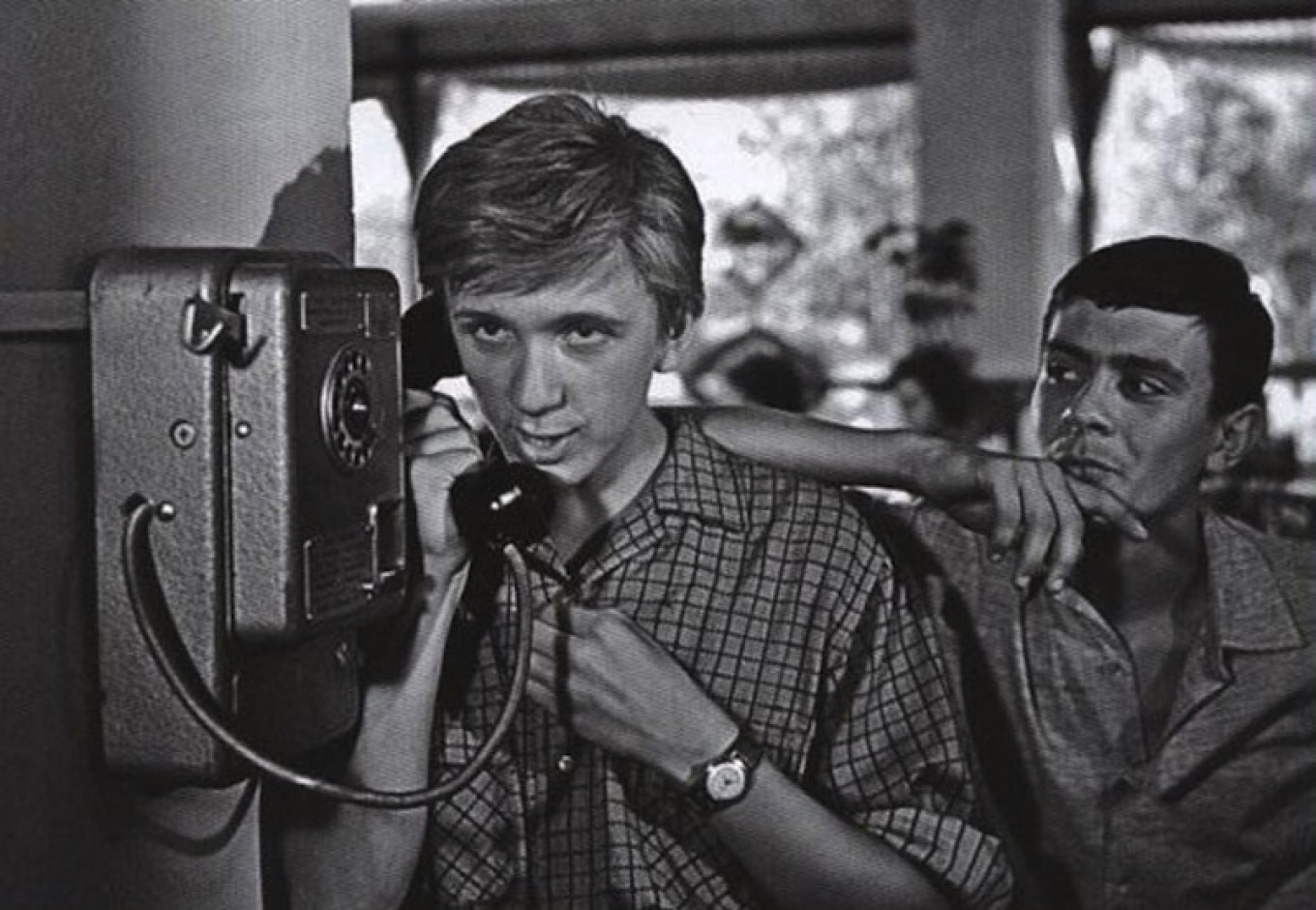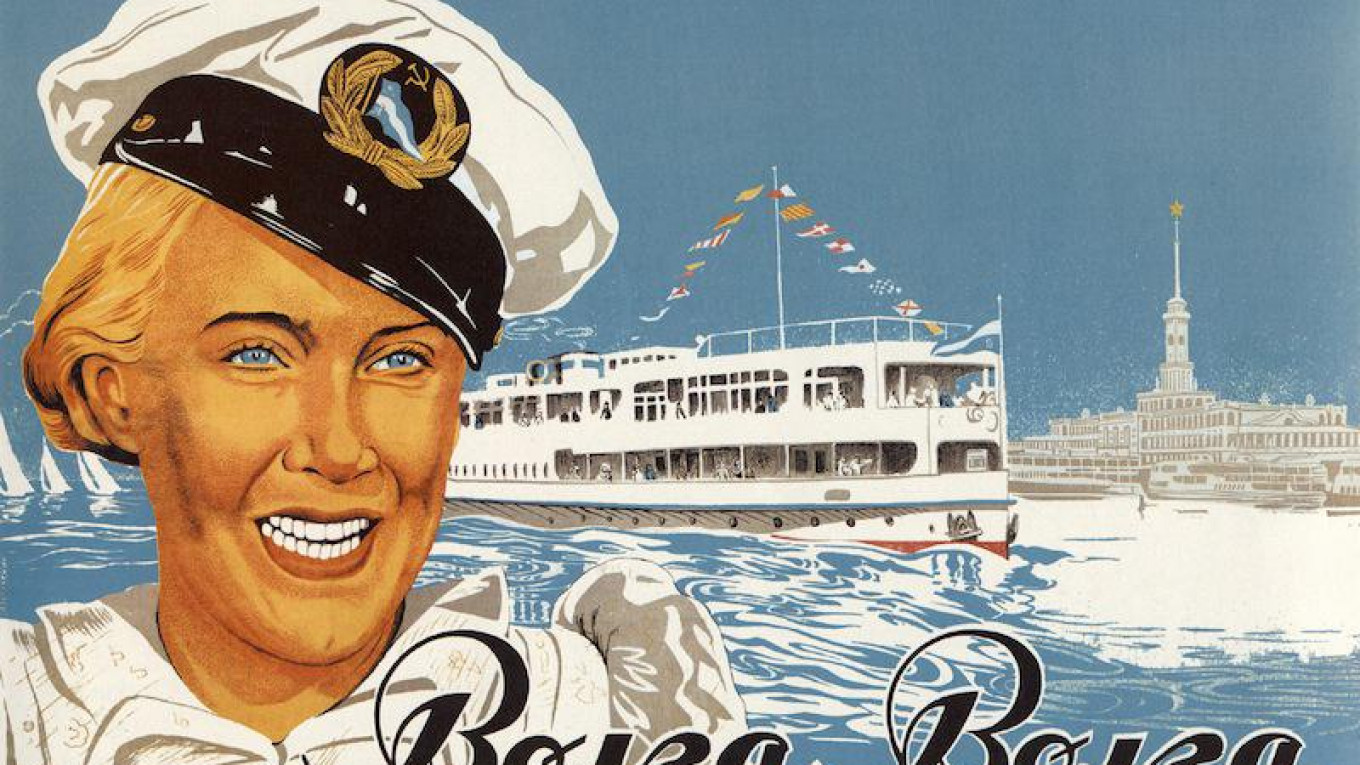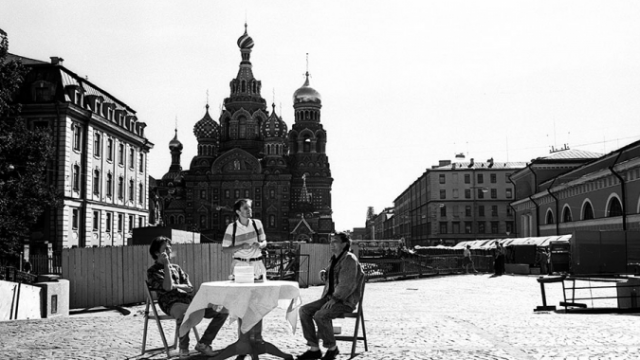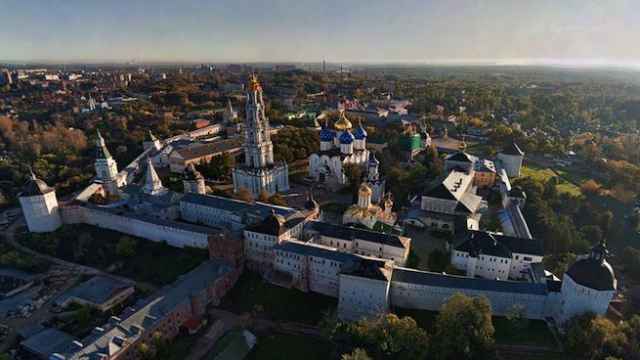Got the summertime blues? Cheer up, small-screen fans, as Moscow television offers you a stellar line-up of very watchable movies this week, including: a classic musical comedy, four evenings of excellent espionage, irresistibly amusing walks through Thaw-era Moscow and Stagnation-era Leningrad and the favorite film of two different Russian leaders.
The week gets off to a rousing start Monday with Volga-Volga (1938), Grigory Aleksandrov’s classic Soviet musical comedy about a boatload of provincial “artistes” heading downriver to a vaudeville-style competition called the Moscow Musical Olympiad. Lyubov Orlova lights up the screen as singer-songwriter Dunya, while Igor Ilinsky does a marvelous turn as her opposite number, the blustering bureaucrat Ivan Ivanovich Byvalov — whose comic pratfalls were said to remind Josef Stalin of his underling (and understudy) Nikita Khrushchev. The Soviet public loved this film, which reportedly superseded “Chapayev” as Stalin’s all-time favorite, and it’s easy to see why: “Volga-Volga” combines entertainment so good and escapism so great that an innocent new-millennium viewer might wonder just how much fun Soviet 1938 actually was. On that score, consider this: the film underwent two de-Stalinization redactions after the dictator’s demise — which might be taken as a very big hint.
Volga-Volga Волга, Волга. Kultura, Monday at 10:20 a.m.
Conspiracy-theory lovers get a big dose this week from STS, which airs the popular Jason Bourne spy thrillers in prime time Monday through Thursday. The first three films feature Matt Damon in the lead as a highly-trained and amazingly resourceful CIA special operative gone rogue. Russian viewers give such high marks to Bourne’s sinister-plot busting — which time and again shows U.S. intelligence as less intelligent than Americans would like — that they’ve even forgiven the series’ producers for assigning the hero a Russian passport under the name Ashchf Lshtshfum (yes, Ащьф Лштшфум). Clear your plans for the week and tune in for all four films — together they’re the perfect warm-up for the just-released Bourne V (“Jason Bourne”), which opens in Moscow September 1.
The Bourne Identity Идентификация Борна (2002). STS, Monday at 9 p.m.
The Bourne Supremacy Превосходство Борна (2004). STS, Tuesday at 9 p.m.
The Bourne Ultimatum Ультиматум Борна (2007). STS, Wednesday at 9 p.m.
The Bourne Legacy Эволюция Борна (2012). STS, Thursday at 9 p.m.

Take Wednesday off for a good book or a walk in the park, then come back Thursday evening rested and ready for a rare double feature — two outstanding Georgy Danelia films in a row on Dom Kino. The buoyant Walking the Streets of Moscow (1963) and the much-loved “sad comedy” hit of 1979 Autumn Marathon.
“Walking” is an episodic, rambling-around-Moscow movie-picaresque about four Russian teens at the height of the Thaw era. Led by a debuting Nikita Mikhalkov, these are kids whose self-evident decency and universal problems-of-youth come across as both believable and amusing — a rare combination indeed for Soviet youth films. The foursome and a fine ensemble of adult supporters weave their way through the city via Gennady Shpalikov’s witty script, convincingly demonstrating en route that the phrase “Soviet lyrical comedy” was by no means an oxymoron. This huge trans-USSR hit also won awards at Cannes, Milan and Prague — and deserved them, as you’ll see.
“Marathon,” set in late-Soviet St. Petersburg — then Leningrad — presents lecturer-translator Andrei Buzykin, masterfully played by Oleg Basilashvili. A middle-aged Soviet everyman-intelligent, the ever-agreeable Buzykin embodies the funniest angst that the Stagnation era could write. The screenplay was the work of Aleksandr Volodin and Danelia managed to outmaneuver Mosfilm and Goskino to get it to audiences largely intact. A special mention to Basilashvili’s love-interest co-stars, Marina Neyolova and Natalya Gundareva, as well as to supporters Evgeny Leonov, Norbert Kuchinke and Galina Volchek. It’s been argued the film should have won Hollywood’s Best Foreign Film Oscar in 1980 (which went to the Vladimir Menshov soaper “Moscow Does Not Believe in Tears”). Tune in and judge for yourself.
“Walking the Streets of Moscow” Я шагаю по Москве. Dom Kino, Thursday at 7 p.m.
“Autumn Marathon” Осенний марафон. Dom Kino, Thursday at 8:25 p.m.
Faint hearts might be discouraged upon hearing that both Josef Stalin and Vladimir Putin have claimed “Chapayev” (1934) as their favorite movie. But don’t let that put you off, some impressive cinematic authorities have pointed impressive thumbs upward for “Chapayev.” The film was awarded first prize by a Sergei Eisenstein-chaired jury at the Moscow Film Festival of 1935, then named Best Foreign Film of 1935 by the U.S. National Board of Review, and two years later it won the Grand-Prix in the cinema competition at the 1937 Paris World’s Fair, no less. Directed with socialist flair by Georgy and Sergei Vasilev from Dmitry Furmanov's eponymous novel, this is a consensus-classic war film with an interesting second social dimension. Commander Chapayev (played by Boris Babochkin) and his faithful warrior-underlings Petka and Anka became staples of modern Russian culture — first as film heroes and then as the “heroes” of an endless series of popular jokes inspired by the movie. Tune in and see what all the fuss is about.
Chapayev Чапаев. Doverie, Saturday at 3:55 a.m.
Mark H. Teeter is the editor of Moscow TV Tonite on Facebook
https://www.facebook.com/Moscow-TV-Tonite-349389231807098/
A Message from The Moscow Times:
Dear readers,
We are facing unprecedented challenges. Russia's Prosecutor General's Office has designated The Moscow Times as an "undesirable" organization, criminalizing our work and putting our staff at risk of prosecution. This follows our earlier unjust labeling as a "foreign agent."
These actions are direct attempts to silence independent journalism in Russia. The authorities claim our work "discredits the decisions of the Russian leadership." We see things differently: we strive to provide accurate, unbiased reporting on Russia.
We, the journalists of The Moscow Times, refuse to be silenced. But to continue our work, we need your help.
Your support, no matter how small, makes a world of difference. If you can, please support us monthly starting from just $2. It's quick to set up, and every contribution makes a significant impact.
By supporting The Moscow Times, you're defending open, independent journalism in the face of repression. Thank you for standing with us.
Remind me later.







